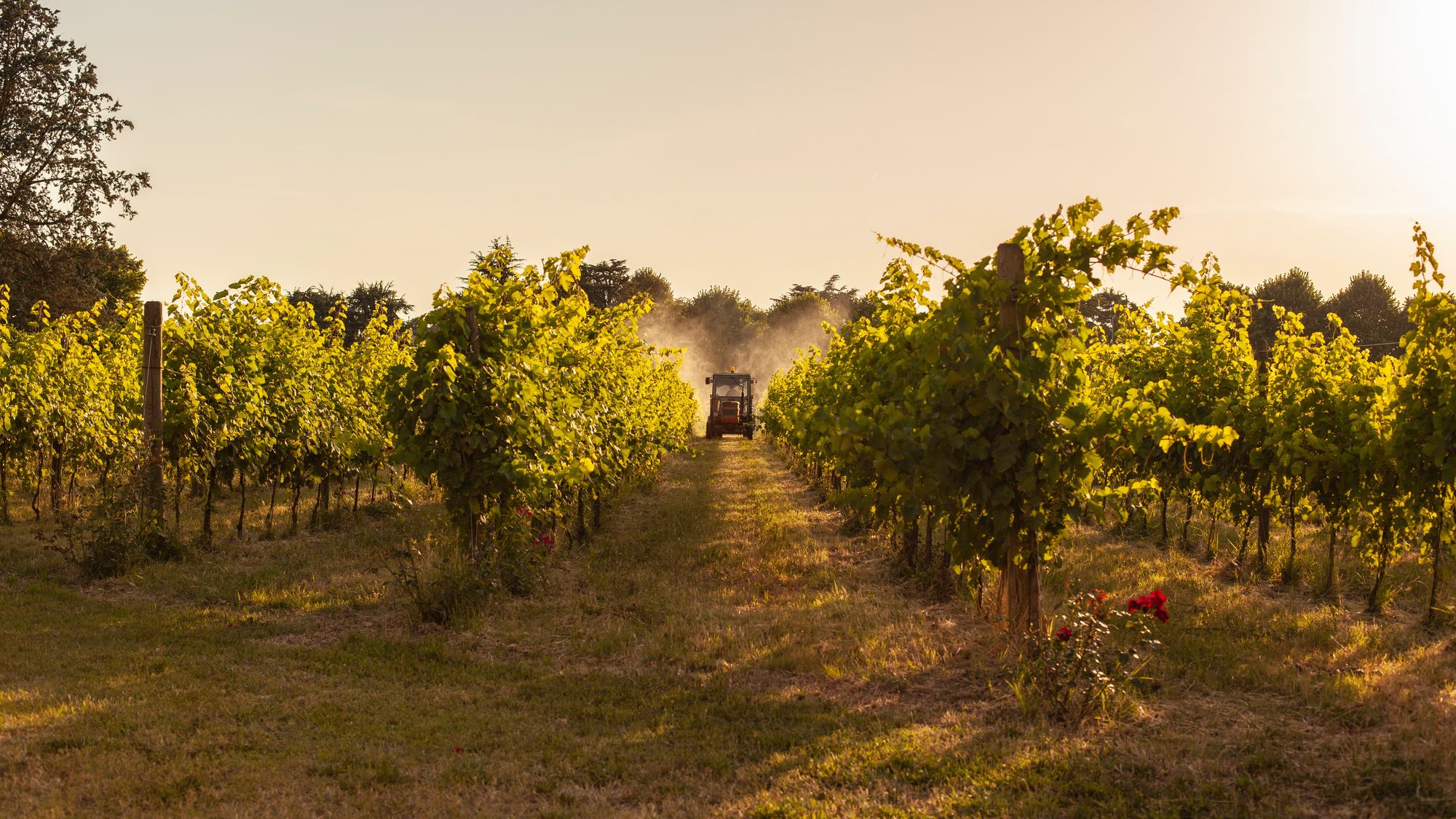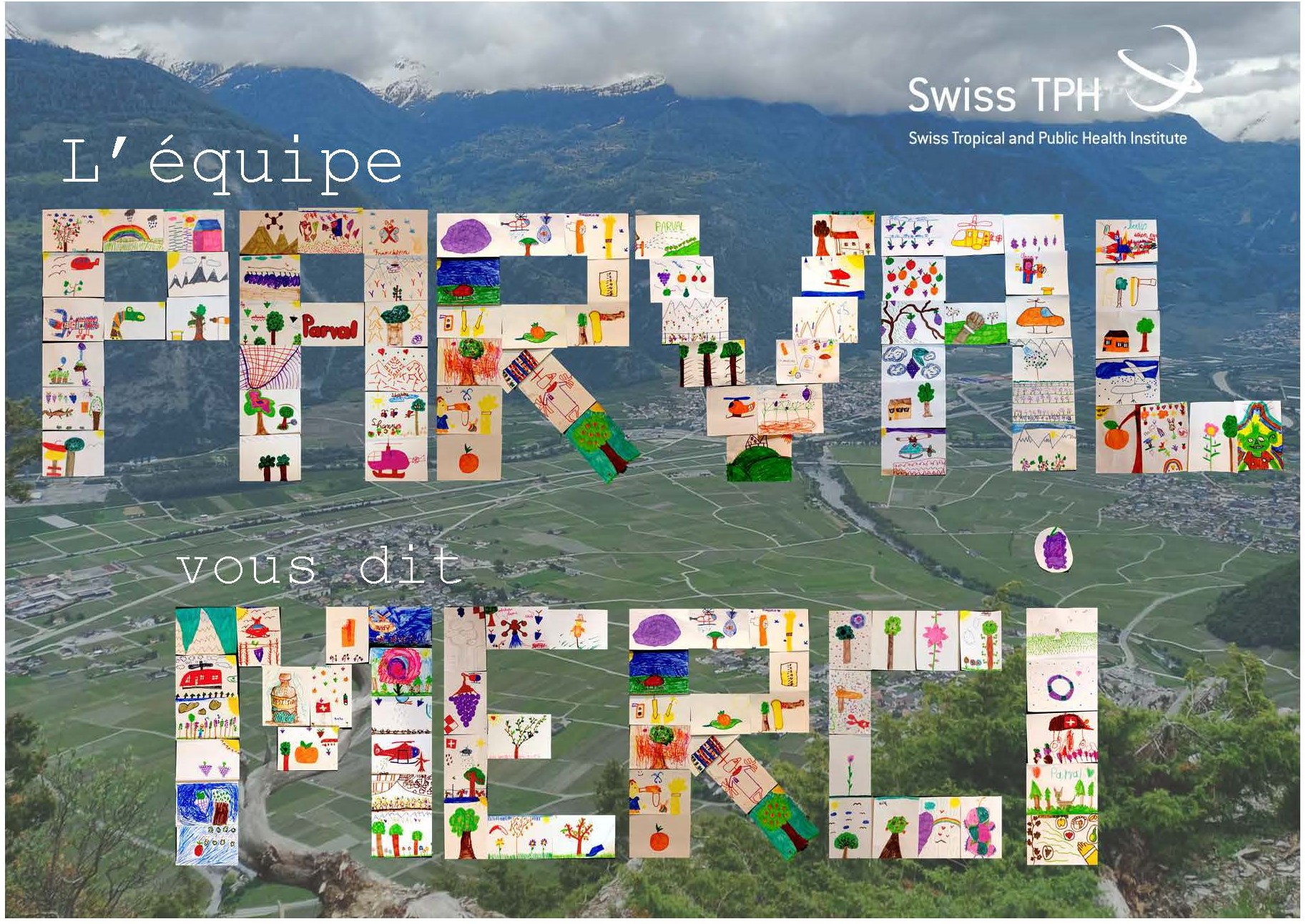PARVAL
Study on Exposure to Pesticides by Air and Respiratory Health in School Children in Valais, Switzerland

Aim of the study
The Exposure to Pesticides by Air and Respiratory Health in School Children in VALais, Switzerland (PARVAL) study aims to assess pesticide exposure in school children in Valais, Switzerland. We will do this by exploring the short-term association between pesticide exposure and respiratory health in primary schoolchildren living near vineyards and fruit orchards, taking the context of non-pesticide-related inhalants (i.e., air pollution) and pollen exposure into consideration.
The PARVAL study has been commissioned by the Department of Public Health of the Canton of Valais, and is independent of pesticide manufacturers and consumers. Swiss TPH, which is carrying out the PARVAL study, is a neutral public scientific health institute with no commercial or political interests. Associated with the University of Basel; the Canton of Valais and the Swiss National Science Foundation provide total funding for the project.
Why is this important?
The concern about the possible negative impact of pesticides on human health is a globally discussed topic wherever pesticides are being use.
The Valais is a canton in Switzerland with many vineyards and fruit trees. Pesticides are often used to protect crops from various diseases and predators. However, residents living near agricultural land might be continuously exposed to low concentrations of multiple conventional and organic pesticides. Several of these agricultural pesticides are potential respiratory irritants and may affect children's respiratory health. So far, there is little evidence of objectively measured exposure to multiple agricultural pesticides in nearby communities and the associations with acute respiratory health effects in children. In addition, no epidemiological study was conducted so far on pesticide exposure in Switzerland.
Who will be invited to participate in the study?
School children attending primary school levels 3H to 8H in the communities of Chamoson, Saxon and Salgesch in the canton of Valais will be invited to participate. The invitations to participate will be addressed to their parents.
What is the course of the study?
The PARVAL study will run over four assessments separated into two study periods, that is, (phase I) one baseline assessment in the off-spraying season (late 2023) and (phase II) three follow-up assessments in the pesticide spraying season (spring/summer 2024).
What happens during the four assessments?
A short online questionnaire will be administered to the participants' parents at each assessment. These questionnaires will assess socio-demographic data, residential history, self-reported pesticide exposure (e.g., drift, take home, and dietary exposure), as well as respiratory-specific health issues of the child.
A subsample of the participants will complete additional direct measurements of pesticide exposure and respiratory health outcomes at each of the four assessment periods in the week before the parent questionnaire is collected. This includes pesticide exposure assessments via urine and silicone wristbands as well as spirometry measurements. All data is kept strictly confidential and will only be used for scientific purposes.
What will be the result of the study?
Swiss TPH will write a report presenting the results of the PARVAL study as well as recommendations for cantonal authorities. Additionally, peer-reviewed scientific publications will be written.
Who should I contact to learn more about the study?
If you have any questions or concerns, please feel free to contact us at parval@swisstph.ch (for inquiries in German, French, Portuguese or English)
Contacting us does not oblige you to participate. We assure you that your personal data will always be treated confidentially.
